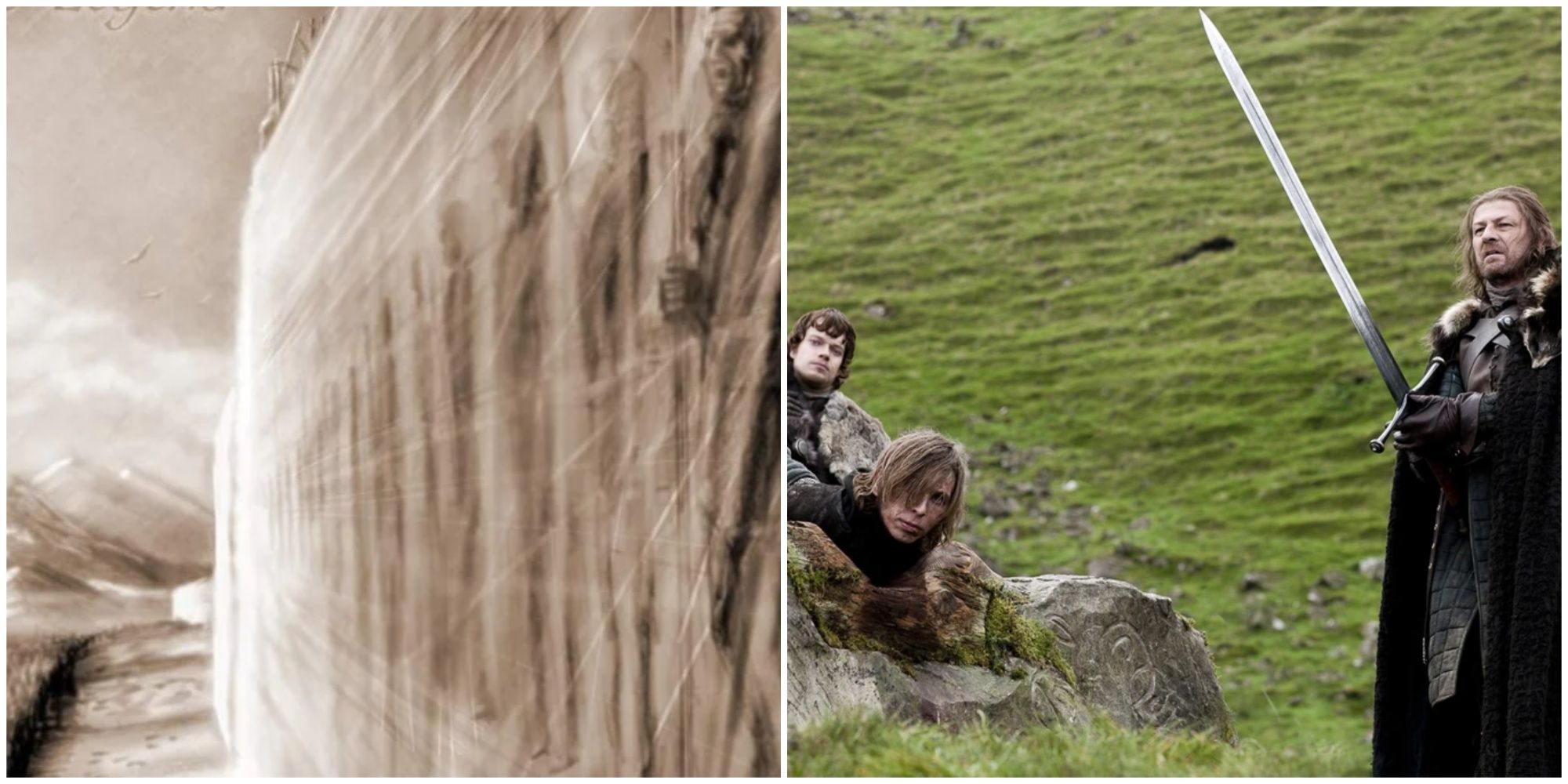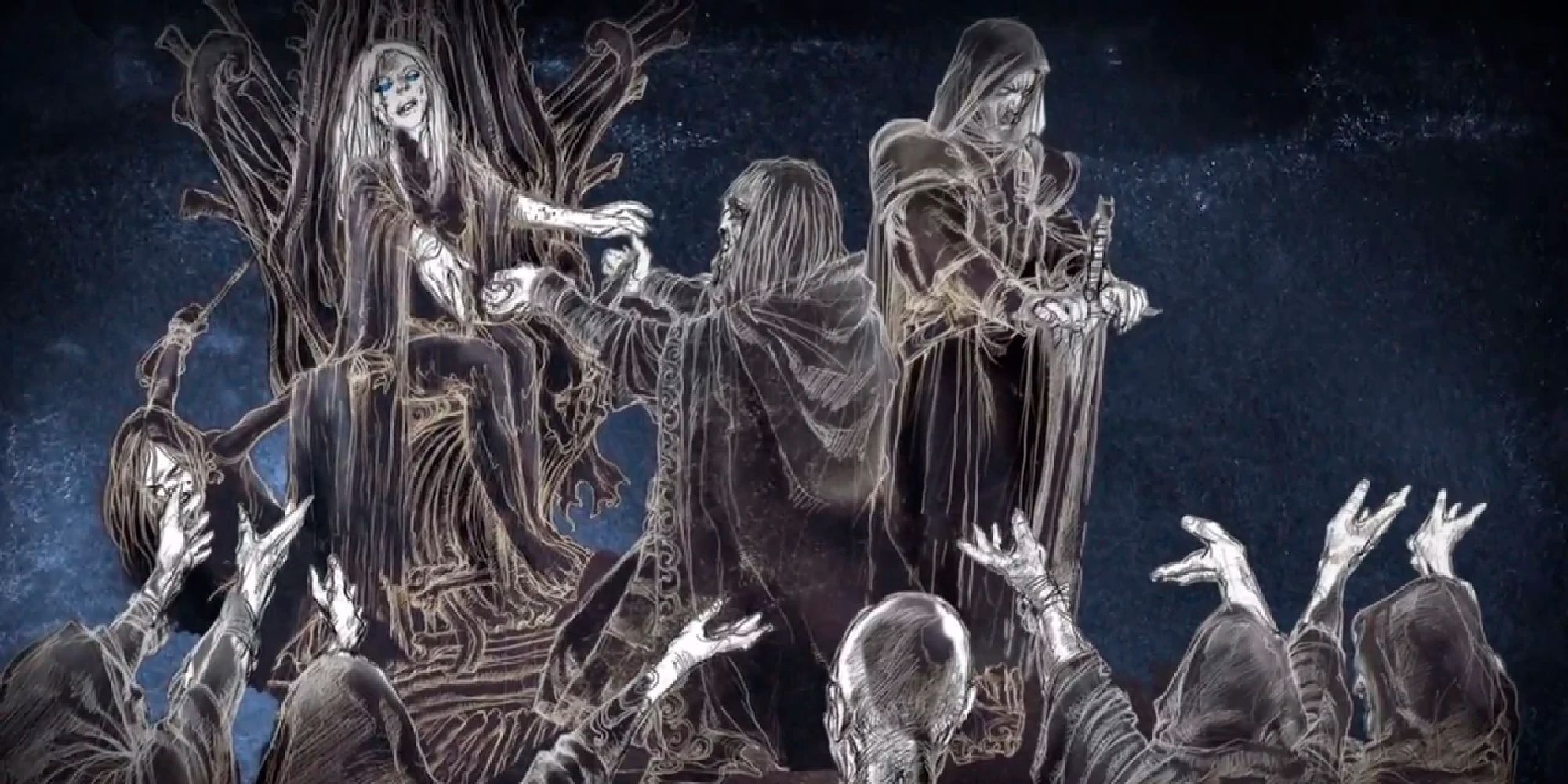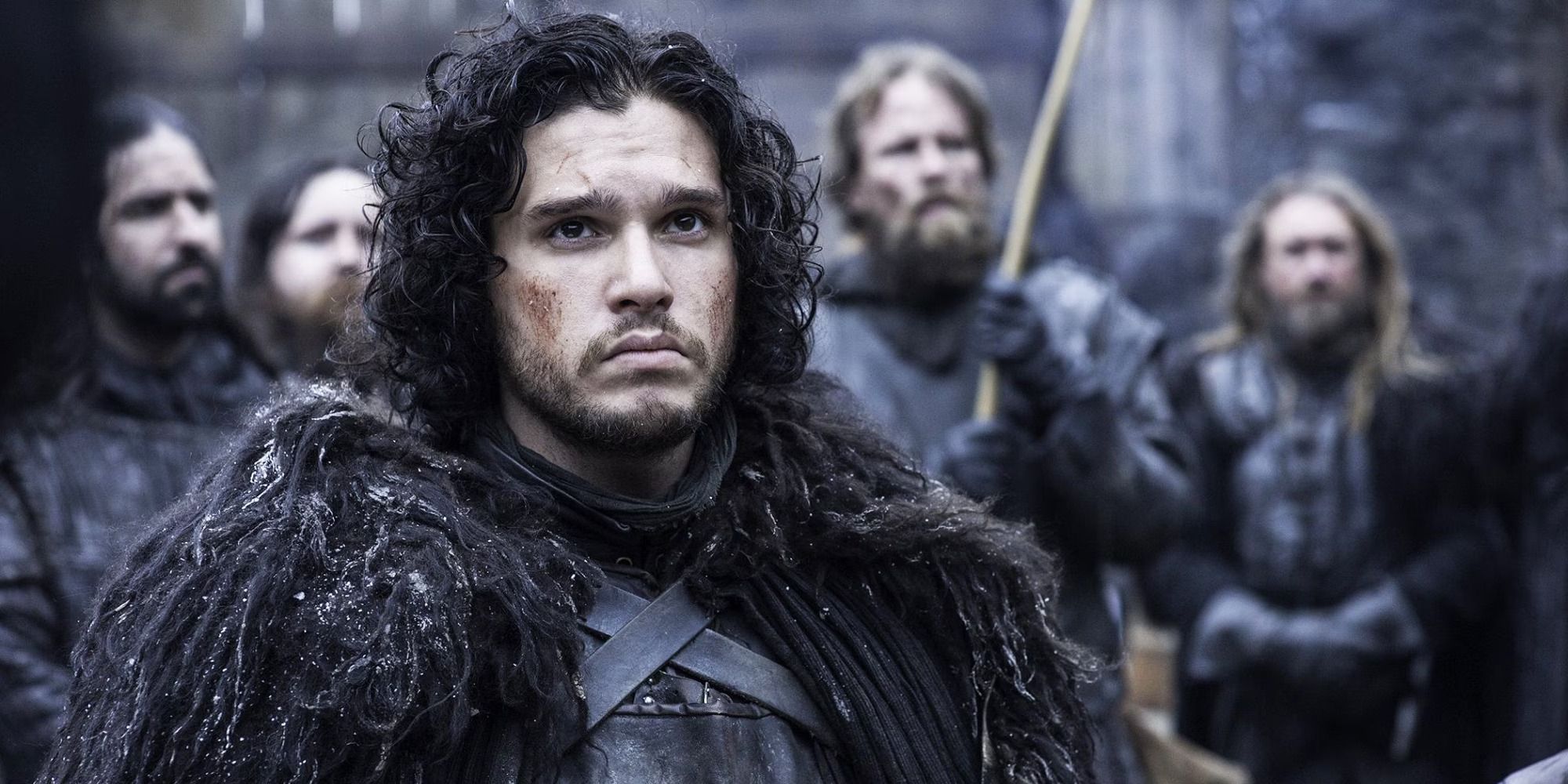Quick Links
Game of Thrones lore says that when Aegon I Targaryen's sister-wife, Queen Visenya, established the Order of the Kingsguard to protect her husband and, by extension, the royal family, she intentionally took inspiration from the Night's Watch vows. The said vows are taken for life and only death can relieve brothers of the sacred service. Those who serve in the leagues of the watch make an unbreakable covenant and are aware that desertion is rewarded with death.
As seen in Game of Thrones, Taking the Black (and/ or receiving a white cloak) means men must solemnly swear to hold no titles, father no children, own no lands, and serve until their death. The promises made by men of the Watch and the seven finest knights in the Seven Kingdoms go beyond loyalty to their kith and kin. That said, Game of Thrones lore and the show's canon are replete with examples of desertion and men who faced music over their dishonorable moves. One such tale is that of the Seventy-nine sentinels.
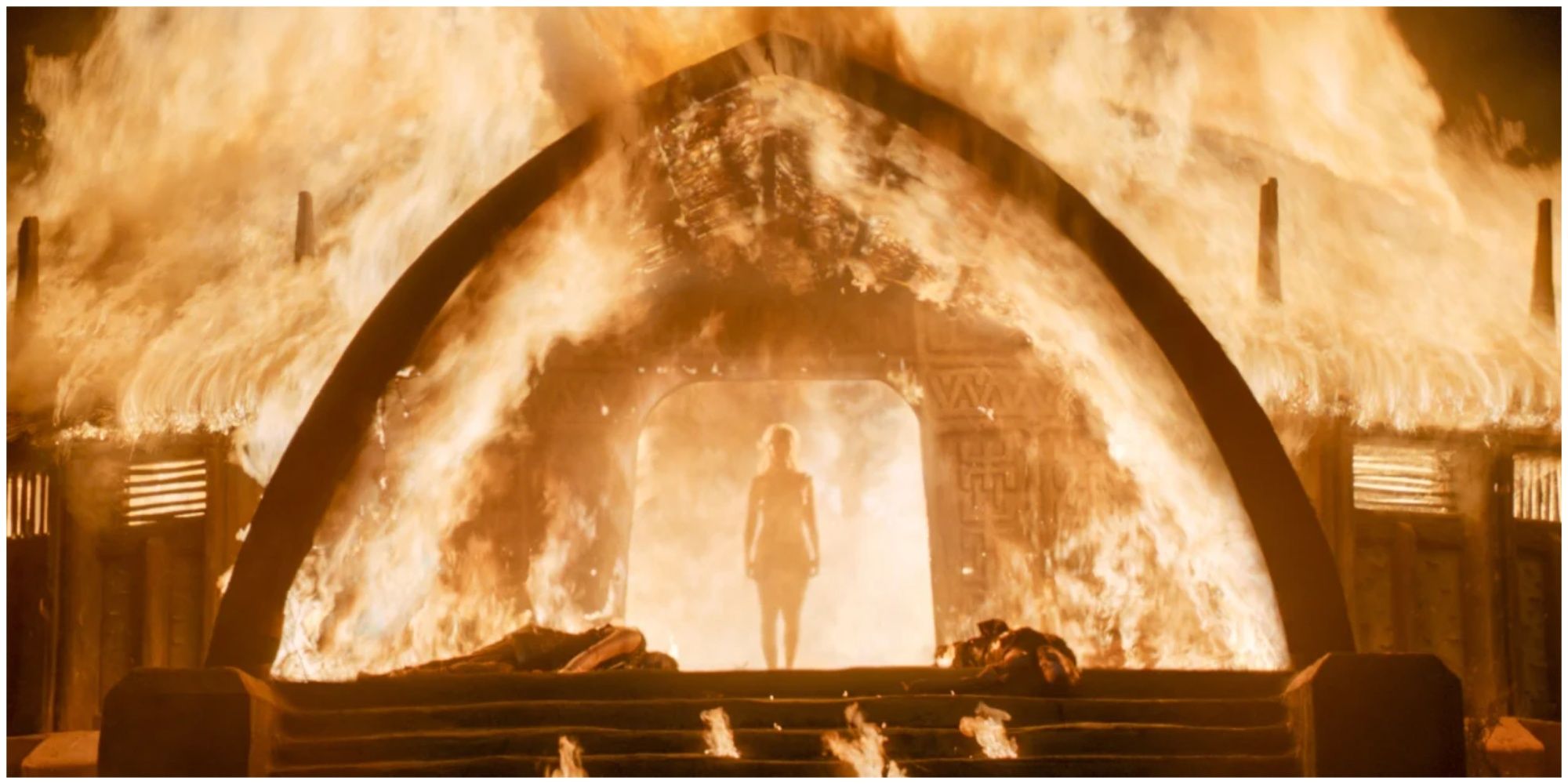
Game Of Thrones: How the Show Changed Daenerys Targaryen's Fire Immunity
Daenerys Targaryen has fire immunity in Game of Thrones, but that's not the case in George R. R. Martin's A Song of Ice and Fire.
Samwell Tarly And Jon Snow Take Their Vows
Game of Thrones focuses intensely on the events in the North of Westeros, more specifically the Kingdom of the North. Such is the enormity and the significance of the Others, aka the Dead and the Night's Watch, that the show opens with three rangers investigating reports of Wildlings in the Haunted Forest, beyond the Wall. Desertion of the Night's Watch immediately comes up as the Lord of Winterfell, Eddard Stark, and his party set out to execute one of the surviving rangers named Will for leaving the Watch.
Later in Game of Thrones season 1, episode 7 "You Win or You Die," fresh recruits, Jon Snow and Samwell Tarly kneel in front of a Weirwood tree that lies a mile north of the Wall and speak their vows. They forsake everything in the world outside and solemnly swear to serve the realms of men:
Hear my words and bear witness to my vow. Night gathers, and now my watch begins. It shall not end until my death. I shall take no wife, hold no lands, father no children. I shall wear no crowns and win no glory. I shall live and die at my post. I am the sword in the darkness. I am the watcher on the walls. I am the shield that guards the realms of men. I pledge my life and honor to the Night's Watch, for this night and all the nights to come.
The infamous tale of the Seventy-nine Sentinels is not visited in the show's canon, but lore has quite a few things to say about it.
What Is The Nightfort?
The Nightfort was the first fortification on the Wall, and it lies towards the west of Castle Black. It was colossal and therefore required a sizable workforce. Since the Night's Watch had a few men at the time, the castle's upkeep became impossible. It was abandoned during Jaehaerys I Targaryen's reign, per Samwell Tarly in Game of Thrones:
It was the first castle on the Wall. The Watch abandoned it during the reign of King Jaehaerys the First. Too big, impossible to maintain.
The Nightfort is also an ill-omened castle, much like Harrenhal of the Seven Kingdoms, and a subject of several unverified tales. Legend says that the Nightfort was a mythical figure, namely the Night's King seat, who used to be the Lord Commander of the Night's Watch. He fell in love with a woman from beyond the Wall, brought her to the Nightfort and declared himself as King of the Wall. Then came a Stark King - Brandon the Breaker, who joined forces with the King-Beyond-the-Wall - Joramun and defeated him.
Who Were The Seventy-Nine Sentinels?
The Outlaws' Watch Didn't End
The infamous story of the seventy-nine deserters in Game of Thrones lore goes something like this:
Seventy-nine sworn brothers of the Nightfort left their ranks without permission and took refuge in the keep of House Ryswell of the Rills in the North. The lord of the holding, whose youngest son was part of the runaways, refused to break the law and decided to send back these sentinels to the Nightfort. The Seventy-nine fugitives were buried alive in holes cut into the Wall as a punishment. Each hole was filled with a deserter, his spear, and horn and sealed up. This harsh measure served as a lesson to anyone who would dare think of abandoning their posts within their lifetime.
Not only is the tale of the Seventy-nine sentinels cautionary in nature, but it ends with Lord Ryswell condemning himself to the same death as his youngest son. The dying lord took the Black and was carried to the Wall to stand beside his son for eternity.
In Game of Thrones lore, Bran Stark says the following to say to his companion, Jojen Reed:
They left their posts in life, so in death their watch goes on forever.

Game of Thrones
Game of Thrones, based on the Song of Ice and Fire book series by George R.R. Martin, tells the sprawling story of warring families in Westeros. This includes the Starks, the Lannisters, the Baratheons, and the Targaryens. Along with human conflicts, Westeros is also threatened by the re-emergence of dragons, and an undead enemy from beyond the Wall.
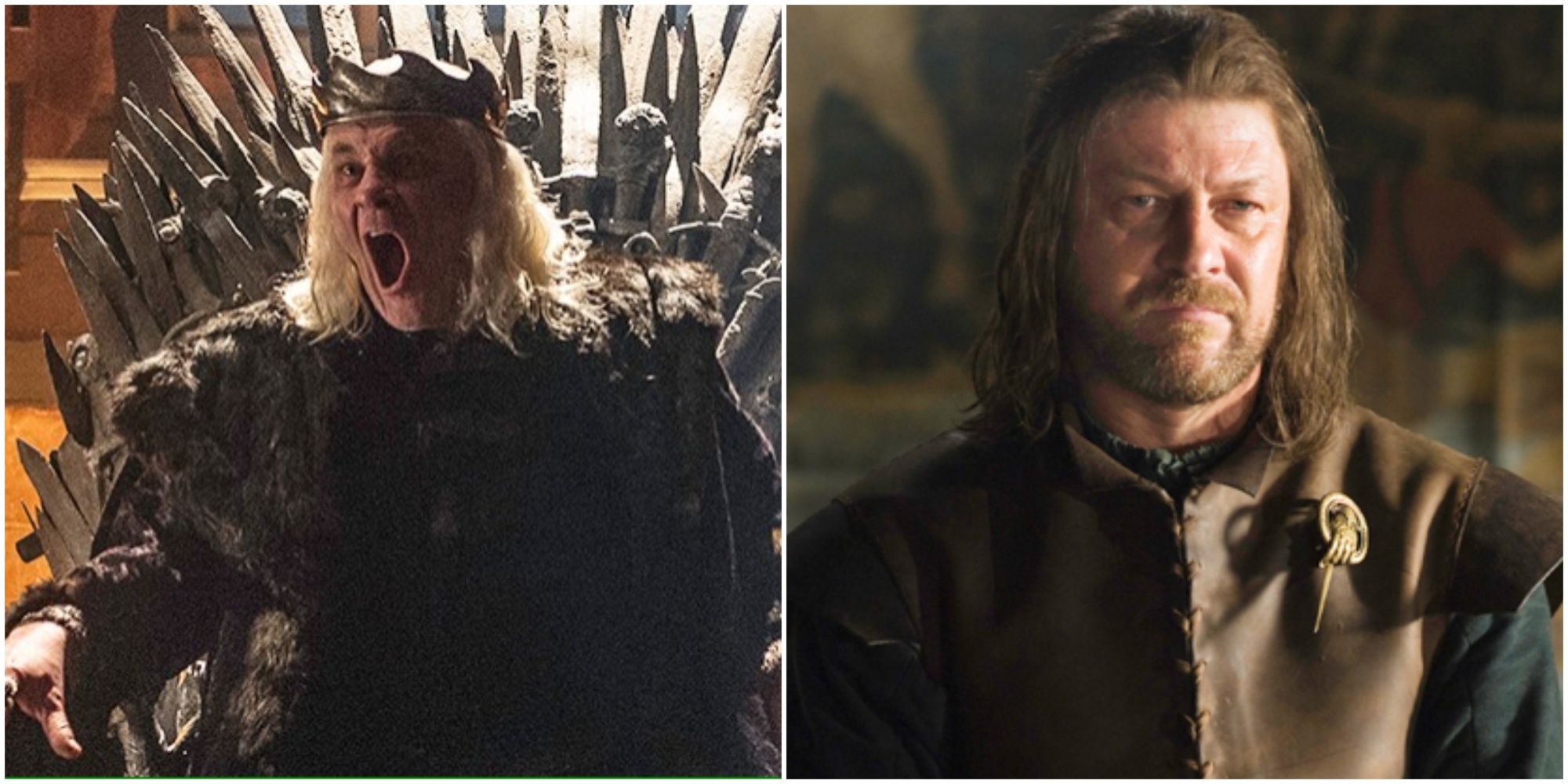
Game Of Thrones: The Relationship Between Starks And Targaryens, Explained
The Stark-Targaryen relationship has its ups and downs in Game of Thrones lore, and here is what makes it fascinating.


